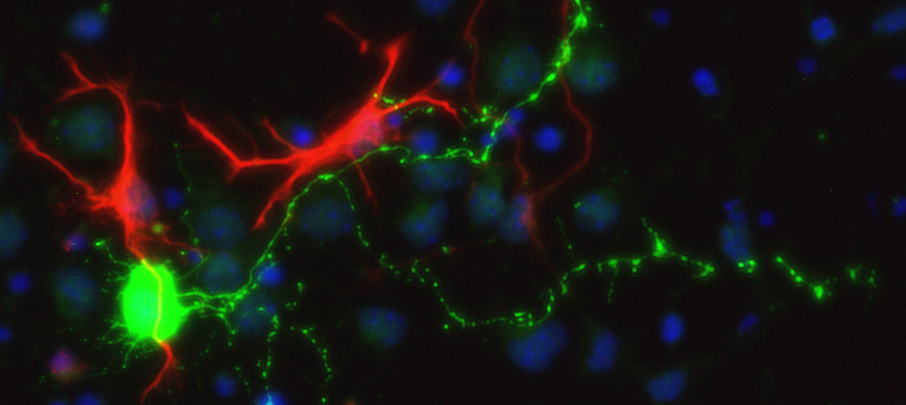-

New Advances in Heart Failure Treatment
Northwestern Medicine scientists demonstrated the efficacy of novel treatments for heart failure and provided new insights into mechanisms of the disease, in three recent studies.
-

Cancer Patients Guaranteed Oncofertility Treatment Coverage Under New Illinois Law
A bill based in part on research and advocacy at Northwestern amends the Illinois insurance code to require oncofertility coverage, which requires insurance to cover fertility preservation.
-

Medical Student Shares Her Passion for Medicine
Denise Monti, a student in the MD/MPH degree program helped organize the Chicago programming for the National Youth Leadership Forum, a week-long career exploration program for high school students.
-

CPS Students Experience Research First-Hand At Women’s Health Science Program
The Women’s Health Science Program, now in its 11th year, provides hands-on laboratory and clinical experiences to young women who are considering careers in science and medicine.
-

Stimulation Excites the Brain to Form Better Memories
For the first time, scientists were able to specifically change the way the brain’s memory centers form new memories, according to a new Northwestern Medicine study.
-

Residents Represent McGaw at National Family Medicine Conference
Michelle Byrne, MD, MPH, a resident in family medicine at the McGaw Medical Center of Northwestern University, was elected to the Board of Directors of the American Academy of Family Physicians.
-

$11.5 Million NCI Award to Accelerate Brain Tumor Research
The Robert H. Lurie Comprehensive Cancer Center has been awarded a new, five-year $11.5 million grant from the National Cancer Institute to advance translational brain cancer research.
-

First-Year Medical Students Explore Curriculum and Profession
During just their second week of class, first-year medical students are introduced to the unique responsibilities of a career in medicine, through Introduction to the Profession Week.
-

Northwestern Hospitals Among the Best in Latest U.S. News Rankings
U.S. News & World Report recognized four Northwestern Medicine hospitals in its 2018-19 rankings of America’s Best Hospitals. The Shirley Ryan AbilityLab once again earned the top spot among rehabilitation hospitals in the country, and Lurie Children’s ranked first among children’s hospitals in Illinois.
-

Genomic Autopsy Can Help Solve Unexplained Cardiac Death
Molecular autopsies can reveal genetic risk factors in young people who unexpectedly die, but proper interpretation of the results can be challenging, according to a recent study.
-

First-Year Medical Students Celebrate Founders’ Day
First-year students donned their white coats for the first time at Founders’ Day, an annual event that celebrates the incoming medical students and the history of the medical school.
-

Lurie Cancer Center Earns Exceptional Rating from National Cancer Institute
The Robert H. Lurie Comprehensive Cancer Center of Northwestern University has been renewed for a fourth five-year grant, totaling $31.5 million and representing a 36 percent increase over its previous funding.
-

‘Exceptional’ Science at the Lurie Cancer Center
This article was originally published in the Breakthroughs Newsletter. Find more stories like this, as well as the new Breakthroughs Podcast, on the Breakthroughs homepage. At the Robert H. Lurie Comprehensive Cancer Center of Northwestern University, the collaborative team of investigators dedicated to confronting cancer has never been stronger. In August, the Lurie Cancer Center was awarded[…]
-

Mechanisms Driving Inherited Heart Disease
Northwestern Medicine scientists have identified a novel mechanism for how mutations in desmoplakin — a protein that helps cells stick together — can lead to cardiac arrhythmias and other diseases.
-

Induced Labor at 39 Weeks Reduces Need for Cesarean Birth
A large national study shows electively inducing labor at 39 weeks actually reduces the rate of cesarean deliveries and decreases maternal and fetal complications.
-

DeVries Awarded Prize for Retinal Neurobiology
Steven DeVries, MD, PhD, was awarded the Brian Boycott Prize at the FASEB Science Research Conference on Retinal Neurobiology and Visual Processing.
-

Basic Science: The Foundation for an ALS Cure
Basic Science conducted by investigators at Northwestern’s Les Turner ALS Center is building a foundation for future ALS care.
-

Prompt Treatment Improves Outcomes in Pediatric Sepsis
Pediatric patients with sepsis who completed a series of treatments within one hour of sepsis recognition had better outcomes, according to a new multi-center study.
-

MD/PhD Student Promotes Diversity and Inclusion Through Research, Advocacy
MD/PhD student Emma Gargus is engaged in research designing biomaterials for use in ovarian health and works to advocate for diversity and inclusion in medicine.
-

Exploring the Mechanisms of Poxvirus Replication
A study published in the journal Cell uncovers how poxviruses take control of a protein complex in order to enhance their replication and counteract an immune response in hosts.






